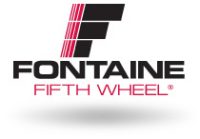In the world of logistics, few things are as important as the tractor-trailer combination. Both components play a vital role in transporting goods across the globe. While tractors have long been the stars of the show, new technology is shifting attention toward trailers. No longer passive cargo carriers, next-generation trailers are transforming the trucking industry with smarter designs and electrified systems.
The Evolving Role of Trailers in Trucking
For years, trailers were considered little more than “big dumb boxes” pulled by tractors. While essential, their contribution to the overall efficiency of the tractor-trailer system was minimal. However, advancements in technology are changing that perception. Today’s trailers are becoming smarter and more integrated into fleet operations. They can now communicate with tractors, shippers, and fleet managers, enhancing safety and efficiency in ways previously unimaginable.
In addition to these communication abilities, new trailer designs incorporate advanced aerodynamic features and electric axles. These innovations help tractors move goods more efficiently by reducing drag and providing additional propulsion when needed, such as during uphill climbs or in difficult terrain.
How Electrified Trailer Axles Are Changing the Game
One of the most exciting developments in trailer technology is the introduction of electrified trailer axles. These axles, equipped with small but powerful electric motors, have the potential to revolutionize how goods are transported. Trailers are no longer just dead weight; they can now contribute to the propulsion of the entire tractor-trailer system.
This breakthrough is particularly significant for two reasons:
- Extended Range for Electric Trucks: Electric trucks, while environmentally friendly, face challenges in terms of range and cost. Electrified trailers can help extend the range of these trucks by providing additional power, making it easier to adopt zero-emission vehicles in commercial fleets.
- Fuel Savings for Diesel Trucks: Even for traditional diesel-powered trucks, electrified trailers offer substantial benefits. By reducing the load on the tractor’s engine, these trailers can help maintain speed on tough grades, ultimately lowering fuel consumption and emissions.
Opportunities for Improved Tractor-Trailer Efficiency
According to Jason Paauwe, head of trailer sales at ZF’s North American Group, next-generation trailers are designed with the same attention to detail as tractors, offering a wealth of opportunities to improve efficiency. Advanced braking systems, solar panels, and onboard batteries are just a few examples of technologies that are reshaping trailer design.
“Smarter trailers boost safety and reduce emissions,” Paauwe explains. “Powered trailer axles can extend the range of electric tractor-trailers and reduce fuel burn for diesel units. These are significant improvements that will have a lasting impact on fleet operations.”
Additionally, trailers equipped with solar panels or batteries can contribute to a vehicle-to-grid setup, allowing fleets to reduce electricity costs by using stored energy from the trailer.
A Step Toward Sustainability in Trucking
The push for more sustainable logistics operations is driving the development of new trailer technologies. Marc Trahand, vice president and general manager of ConMet, highlights how electrified trailers can help reduce CO2 emissions and pave the way for widespread adoption of zero-emission commercial vehicles.
“Electric trucks are still very expensive, and their range is limited,” Trahand explains. “By using trailers with electrified axles, we can help extend the range of electric trucks and reduce emissions for diesel ones. This is a huge step toward making sustainable trucking a reality.”
Regenerative braking systems are another promising feature that trailers bring to the table. These systems capture kinetic energy during braking and store it in onboard batteries, which can then be used to assist with propulsion or power refrigeration units.
How Electrified Trailers Work
The concept behind electrified trailers is relatively simple: by incorporating electric motors into the trailer’s axles, the trailer can contribute to the overall propulsion of the vehicle. This turns what was once dead weight into an active participant in the trucking process.
Ralph Dimenna, chief commercial officer at Aperia Technologies, breaks it down: “Electrification includes axles, hubs, wheel-end motors, and similar components. These motors generate power when the wheel is rotating, and that energy can be used to either assist in propulsion or charge a battery that powers other systems.”
This system, often integrated into smart hubs, provides a more reliable and efficient way to power trailers and even other vehicle components, like refrigeration units.
Looking Ahead: The Future of Next-Generation Trailers
As the industry moves toward the mass adoption of next-generation trailers, companies like ZF are leading the way with innovative designs that integrate electric axles, battery systems, and advanced software. Paauwe points out that fleets will have more flexibility than ever when it comes to customizing their trailers for specific operational needs.
“Whether a fleet is focused on fuel efficiency, emissions goals, or electric operations, we’re going to see a high degree of flexibility in how trailers are spec’d out moving forward,” Paauwe says.
The electrification of trailers is still in its early stages, but the potential is immense. With technologies like regenerative braking, powered axles, and solar panels, trailers are no longer just tools for transporting goods—they’re integral components in making trucking more efficient, sustainable, and cost-effective.
Conclusion
The future of trucking is evolving rapidly, with trailers playing an increasingly important role in driving efficiency and sustainability. Electrified trailers are leading this transformation by offering solutions to extend the range of electric trucks, reduce fuel consumption for diesel units, and lower CO2 emissions.
As trailer technology continues to develop, we can expect even greater advances in safety, efficiency, and environmental impact. What was once a passive element in the logistics chain is now a critical component in shaping the future of transportation.






